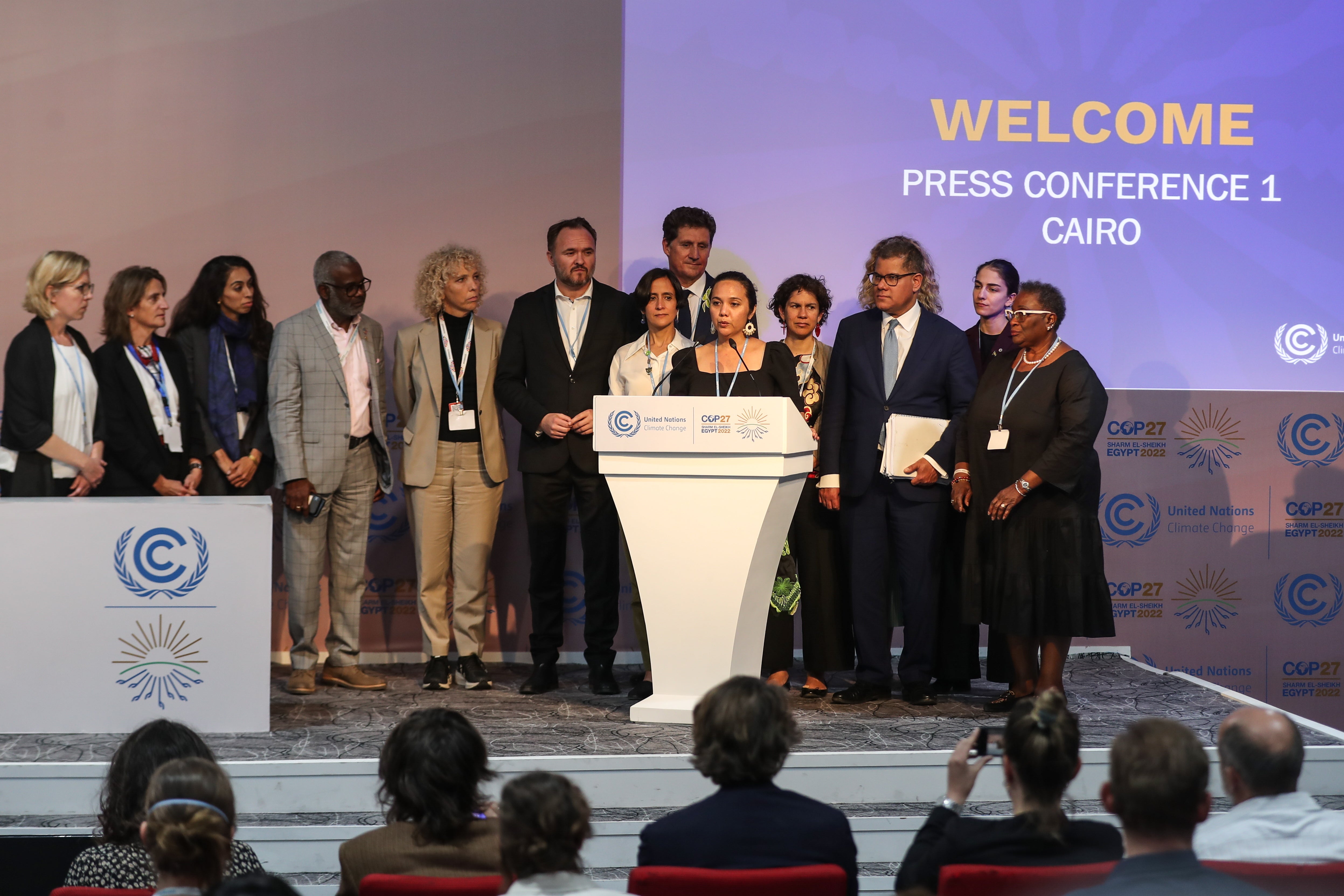Dozens of countries demand fossil fuel phase-out in final Cop27 decision as talks go to wire
The two-week summit in Sharm el-Sheikh now in overtime as countries struggle to agree a path forward in the climate fight
Your support helps us to tell the story
From reproductive rights to climate change to Big Tech, The Independent is on the ground when the story is developing. Whether it's investigating the financials of Elon Musk's pro-Trump PAC or producing our latest documentary, 'The A Word', which shines a light on the American women fighting for reproductive rights, we know how important it is to parse out the facts from the messaging.
At such a critical moment in US history, we need reporters on the ground. Your donation allows us to keep sending journalists to speak to both sides of the story.
The Independent is trusted by Americans across the entire political spectrum. And unlike many other quality news outlets, we choose not to lock Americans out of our reporting and analysis with paywalls. We believe quality journalism should be available to everyone, paid for by those who can afford it.
Your support makes all the difference.Dozens of countries have demanded that the final Cop27 pact should put the world on a path to phasing out all fossil fuels as negotiations went down to the wire on Saturday,
The latest draft agreement from the Sharm el-Sheikh summit has failed once again to include a call to wind down fossil fuel use, the primary cause of the global climate crisis.
Late on Saturday afternoon, the High Ambition Coalition (HAC), an informal group of around 60 countries including small island states and vulnerable nations, demanded more.
“We must emerge from Cop27 with a package of outcomes that keeps 1.5C alive and protects the world’s vulnerable,” said Tina Stege, the Marshall Islands climate envoy said. She was joined at the briefing by Alok Sharma, the British MP and Cop26 president, and Jennifer Morgan, Germany’s climate envoy, among others.
1.5C is the more ambitious global temperature limit of the 2015 Paris Agreement, where all countries also pledged to hold global warming “well below 2C”.
At Cop27, reports have emerged of major fossil fuel users including Brazil, China and Russia and Gulf states backsliding on this goal. Many small island states and African nations say that failure to keep 1.5C “alive” would be a death sentence for their communities.
Ms Stege said that to keep 1.5C in reach, the Cop27 decision must reflect the latest scientific findings that require emissions to peak by 2025 at the latest.
“This Cop decision must put the world on a path to phasing out all fossil fuels, and an urgent just transition to renewables,” she added.
The coalition also said that it was not acceptable for the “Sharm” agreement to go backwards on what had been agreed last year in Glasgow and needed to be more ambitious.
Along with a commitment to 1.5C, a fund for loss and damage caused by the climate crisis in vulnerable countries was also “fundamental”, HAC said, along with swift action to get it up and running by next year.
“But one without the other doesn’t make sense because otherwise we will be accepting catastrophe and not pushing forward towards avoiding the worst of climate change,” Colombian minister and HAC member Susana Muhamad said.

“We don’t resign ourselves to not achieving what we need to achieve otherwise we will be telling the world that there’s nothing we can do anymore.”
Earlier this week, India, supported by other countries and the European Union, proposed a statement on “phasing down” all fossil fuels in the Cop27 “cover text” – which functions as the world’s collective vision on progressing the climate fight and must be signed off by all parties.
But the latest draft, published on Saturday, had no reference to “phasing out” or “phasing down” of fossil fuels.
Instead, it calls for countries to accelerate “efforts towards the phasedown of unabated coal power and phase-out of inefficient fossil fuel subsidies”.
The language is a repeat of the Glasgow Climate Pact made at Cop26, and “very weak” in ambition, analysts said.
Tom Evans, policy adviser with think tank E3G, said that several fossil-fuel-dependent economies, including Saudi Arabia and China, want the Cop27 agreement to focus on emissions overall, instead of energy sources.
And while the rhetoric may have been strong on fossil fuels by some in public, a number of countries, including the United States, didn’t champion the issue inside the negotiation rooms, he added.
Climate activists have lambasted the lack of progress at the conference.
“The fossil fuel industry and the elites in their pocket rallied to take over Cop27,” said Catherine Abreu, founder and director of Destination Zero, which campaigns for a move away from fossil fuels.
“This is the last act of desperate men who first denied climate science, then delayed climate policy, and now want to usurp real climate solutions with false ones. It’s unfortunate this Cop failed to live up to the science of 1.5C by addressing the root cause of the climate crises – coal, oil and gas. But don’t be fooled: their actions won’t stall the inevitable progress unfolding on the ground away from fossil fuels and toward efficient, renewable energy.”




Join our commenting forum
Join thought-provoking conversations, follow other Independent readers and see their replies
Comments